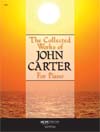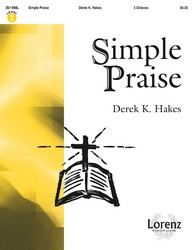- |
User Links
My Shepherd Will Supply My Need

My Shepherd will supply my need
Author: Isaac Watts (1719)Tune: RESIGNATION (Southern Harmony)
Songs of Response
Published in 234 hymnals
Printable scores: PDF, MusicXMLPlayable presentation: Lyrics only, lyrics + musicAudio files: MIDI, Recording
Representative Text
1 My Shepherd, you supply my need,
most holy is your name;
in pastures fresh you make me feed,
beside the living stream.
You bring my wand'ring spirit back.
when I forsake your ways;
you lead me, for your mercy's sake,
in paths of truth and grace.
2 When through the shades of death I walk,
your presence is my stay;
one word of your supporting breath
drives all my fears away.
Your hand in sight of all my foes,
does still my table spread;
my cup with Blessings overflows,
your oil anoints my head.
3 Your sure provisions gracious God
attend me all my days;
oh, may your house be my abode,
and all my work be praise.
Here would I find a settled rest,
while others go and come;
no more a stranger, nor a guest,
but like a child at home.
Evangelical Lutheran Worship, 2006
Author: Isaac Watts
 Isaac Watts was the son of a schoolmaster, and was born in Southampton, July 17, 1674. He is said to have shown remarkable precocity in childhood, beginning the study of Latin, in his fourth year, and writing respectable verses at the age of seven. At the age of sixteen, he went to London to study in the Academy of the Rev. Thomas Rowe, an Independent minister. In 1698, he became assistant minister of the Independent Church, Berry St., London. In 1702, he became pastor. In 1712, he accepted an invitation to visit Sir Thomas Abney, at his residence of Abney Park, and at Sir Thomas' pressing request, made it his home for the remainder of his life. It was a residence most favourable for his health, and for the prosecution of his literary… Go to person page >
Isaac Watts was the son of a schoolmaster, and was born in Southampton, July 17, 1674. He is said to have shown remarkable precocity in childhood, beginning the study of Latin, in his fourth year, and writing respectable verses at the age of seven. At the age of sixteen, he went to London to study in the Academy of the Rev. Thomas Rowe, an Independent minister. In 1698, he became assistant minister of the Independent Church, Berry St., London. In 1702, he became pastor. In 1712, he accepted an invitation to visit Sir Thomas Abney, at his residence of Abney Park, and at Sir Thomas' pressing request, made it his home for the remainder of his life. It was a residence most favourable for his health, and for the prosecution of his literary… Go to person page >Text Information
| First Line: | My Shepherd will supply my need |
| Title: | My Shepherd Will Supply My Need |
| Author: | Isaac Watts (1719) |
| Meter: | 8.6.8.6 |
| Place of Origin: | England |
| Language: | English |
| Notes: | Spanish translation: "Es Jesucristo mi Pastor" by Juan N. De Los Santos |
| Copyright: | Public Domain; Trad. Esp. estr. 3 y música © Raquel Mora Martínez |
| Liturgical Use: | Songs of Response |
English
- A Collection of Hymns for the use of the Wesleyan Methodist Connection of America #d346
- A Collection of Hymns, for the Use of the People Called Methodists, with a Supplement #679
- A Collection of Hymns, for the use of the Wesleyan Methodist Connection of America. #238
- A Collection of Psalms and Hymns for Christian Worship #160
- A Collection of Psalms and Hymns for Christian Worship (10th ed.) #160
- A Collection of Psalms and Hymns for Christian Worship (6th ed.) #160
- A Collection of Psalms and Hymns for Christian Worship. (3rd ed.) #160
- A Collection of Psalms and Hymns for Christian Worship. (45th ed.) #160
- A Collection of Psalms and Hymns for Christian Worship. 16th ed. #160
- A Compilation of Genuine Church Music. 4th ed. #d193 10 shown out of 129
Spanish
Notes
Scripture References:
st. 1 = Ps. 23:1-3
st. 2 = Ps. 23:4-5
st. 3 = Ps. 23:6
Psalm 23 has inspired numerous paraphrases and hymn texts, including this text by Isaac Watts (PHH 155). Watts included it in his large 1719 collection of psalm paraphrases, The Psalms of David Imitated.
For general comments on this beloved psalm, see PHH 23; other settings are also at 161 and 452.
Liturgical Use:
See suggestions at PHH 23,161, and 162.
--Psalter Hymnal Handbook, 1988
For Leaders
Psalm 23 remains the most well-loved and often recited psalm, and Isaac Watts' powerful paraphrase, coupled with the peaceful yet strong American folk tune, make this hymn a moving rendition of that psalm. Watts’ interpretation of the last line of psalm, “and I will dwell in the house of the LORD forever,” gives a new understanding to the original psalm: “No more a stranger or a guest, but like a child at home.” Watts gives us a concrete image of dwelling – a child, knowing he or she is safe and secure, and in a place of love and comfort – to help us understand what it is we hope for. The same peace we find in the pasture and by the stream, we find in the house of the LORD, to which our Shepherd is leading us day by day.
Text:
One of Isaac Watts’ less frequently used hymns, this lilting rendition of Psalm 23 evokes a sense of peace and calm – an expression of trust in God’s provision. Written for the 1719 collection, The Psalms of David Imitated, this hymn has endured as a moving paraphrase of the beloved psalm. The original consisted of six stanzas, but in today’s modern version each stanza consists of two of the original. There are almost no textual changes – in some hymnals, the first line reads, “My shepherd will supply my need, the Lord God is his name” rather than “Jehovah is his name.” Either title is fitting.
Tune:
The tune accompanying this hymn in almost every case is RESIGNATION, an American folk melody that first appeared in Southern Harmony in 1835. In most hymnals the tune is in the key of C. The hymn became popular in a choral setting by the American composer Virgil Thomson, and today remains a favorite choral piece - the Mormon Tabernacle Choir, for example, performs a beautiful, soft rendition.
The hymn can also be sung quite easily by a congregation, usually accompanied by piano, but it is possible to use guitar as well – I would suggest light finger picking. Note that the hymn rushes through the last bar of each phrase without giving much time for a breath - rather than add an extra beat and creating an awkward rhythm, try adding an extra measure and filling the space with the accompaniment. This gives the added bonus of making the hymn even more lilting and peaceful.
When/Why/How:
This hymn can be sung throughout the year at any point in a worship service as a declaration of trust and comfort. It can be particularly powerful after a profession of faith or baptism, during a funeral, or after an intercessory prayer.
Suggested music:
- Aniol, Scott. My Shepherd Will Supply My Need - For two part Choir or Duet
- Helvey, Howard. My Shepherd Will Supply My Need - For two part or unison Choir
- Evanovich, Joshua. My Shepherd, the King of Love - For Handbells, an arrangement of "The King of Love My Shepherd Is" and "My Shepherd Will Supply My Need"
- Cummings, Timothy. My Shepherd Will Supply My Need - Instrumental piece for Organ, Bagpipe, or other instrument
Laura de Jong, Hymnary.org
Timeline
Arrangements
Media
Evangelical Lutheran Worship #782
Hymns: for home and church #1014
- My Shepherd Will Supply My Need (PDF)
Methodist Tune Book: a collection of tunes adapted to the Methodist Hymn book #93
- MusicXML (XML)
- MIDI file from The Cyber Hymnal #4356
- Audio recording from Evangelical Lutheran Worship #782
- MIDI file from Evangelical Lutheran Worship #782
- Audio recording from Glory to God: the Presbyterian Hymnal #803
- Audio recording from Lift Up Your Hearts: psalms, hymns, and spiritual songs #369
- Audio recording from Lift Up Your Hearts: psalms, hymns, and spiritual songs #369
- Audio recording from Lift Up Your Hearts: psalms, hymns, and spiritual songs #369
- Audio recording from Lift Up Your Hearts: psalms, hymns, and spiritual songs #369
- Audio recording from Methodist Tune Book: a collection of tunes adapted to the Methodist Hymn book #93
- Audio recording from Psalms for All Seasons: a complete Psalter for worship #23A
- MIDI file from Psalter Hymnal (Gray) #550
- MIDI file from Psalter Hymnal (Gray) #550
- Audio recording from The Southern Harmony, and Musical Companion (New ed. thoroughly rev. and much enl.) #38
- Audio recording from The Southern Harmony, and Musical Companion (New ed. thoroughly rev. and much enl.) #38
- MIDI file from The Southern Harmony, and Musical Companion (New ed. thoroughly rev. and much enl.) #38


 My Starred Hymns
My Starred Hymns







